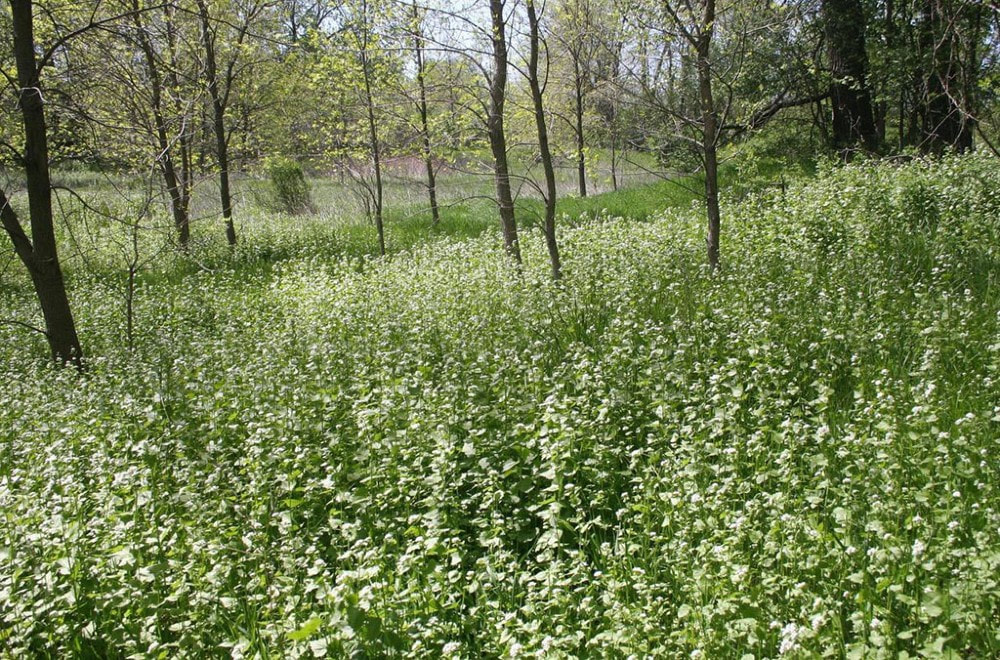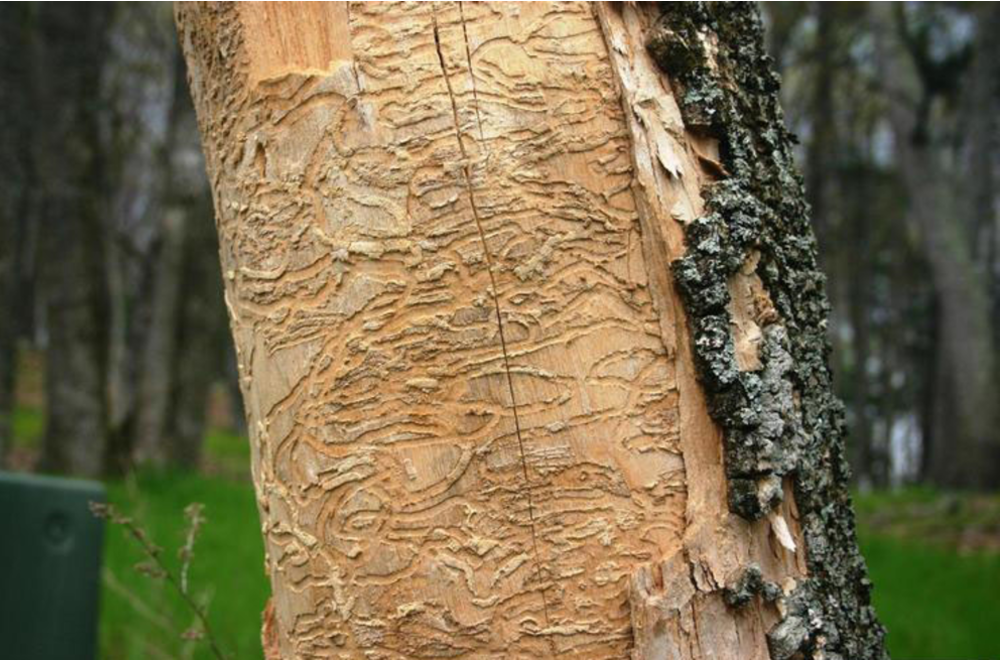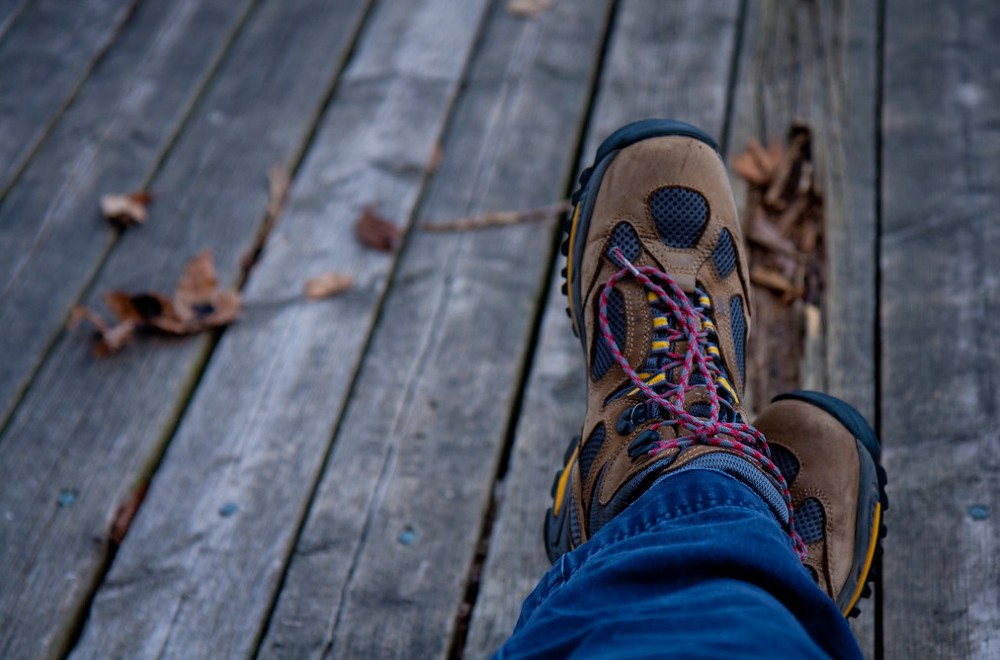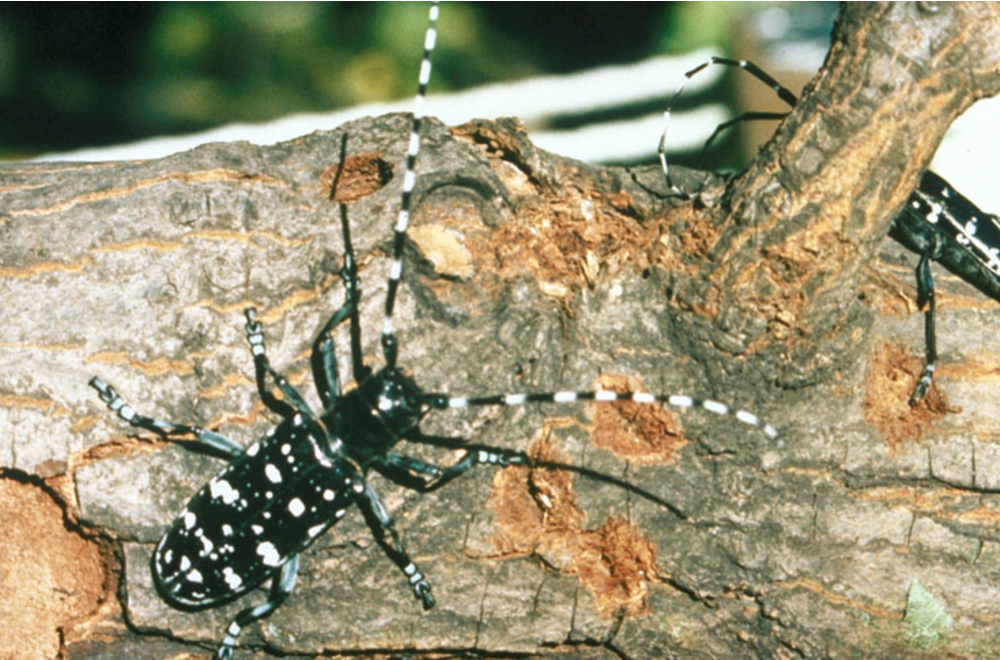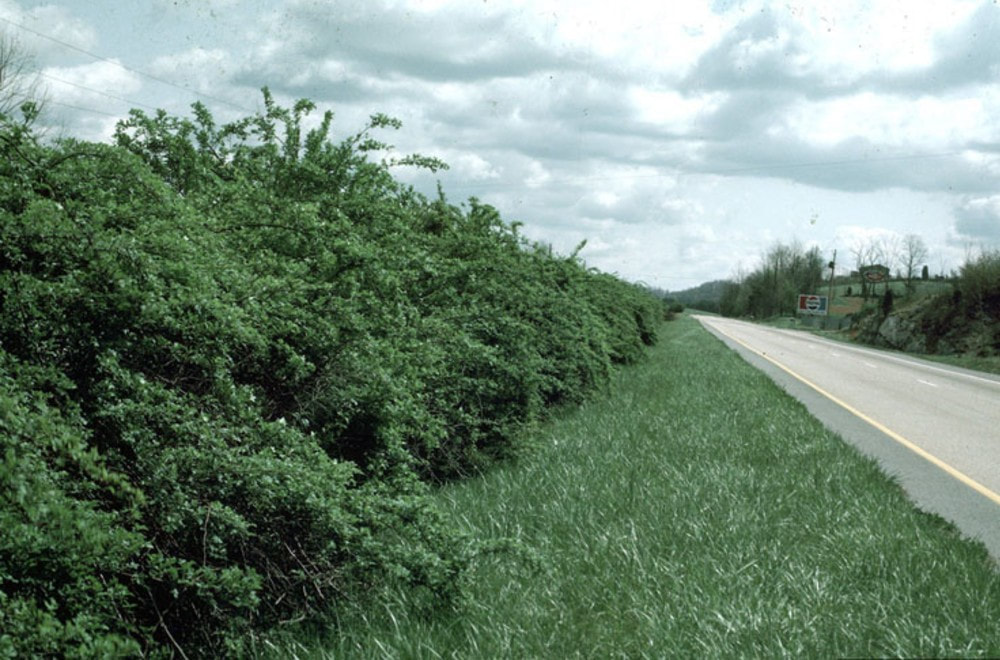Be A Hero!
TERRESTRIAL INVADERS - The Problem
CAUSE HARMLand-based invaders have negatively impacted the forests and fields of Illinois. Invasive insects such as the emerald ash borer have killed millions of trees in forests and urban areas in the U.S. Invasive plants such as buckthorn and garlic mustard have taken over entire acres once inhabited by native ones. However, new invasions can be prevented and the spread of established invaders can be halted.
Garlic Mustard
Garlic mustard (Alliaria petiolata) is native to Europe and was likely introduced to North America for medicinal and culinary purposes. It forms dense stands, shading out native understory and preventing the growth of other seedlings. It also releases a chemical into the soil that prevents the seeds of other species from germinating. A single garlic mustard plant produces hundreds of seeds that can spread on animals’ fur and people’s clothing or equipment. Not many animals in the United States eat garlic mustard. |
SPREAD EASILYThe key to halting invasions is preventing the accidental movement of invasive species when we're transporting our equipment and natural materials. Equipment such as boots, tents, lawn furniture, and campers can move adult insects and egg masses from one place to another. Natural materials such as firewood, foraged plants, foraged food, and decorative items can also spread insects and insect eggs as well as bacteria and viruses.
Emerald Ash Borer
The emerald ash borer (Agrilus planipennis) is native to Eastern Russia, Northern China, Japan, and Korea. This beetle was likely introduced to the United States in wood packing materials. Since its introduction, the emerald ash borer has killed millions of ash trees across North America, resulting in significant economic and ecological damage. The photo above shows evidence of an emerald ash borer infestation under the bark of an ash tree. The insect does not fly far on its own, but it has been transported and allowed to spread to new areas via the movement of firewood. |
clean outdoor gear and leave nature In its place
MOVING OUTDOOR EQUIPMENT AND NATURAL MATERIAL SPREADS INVADERSMany recreational activities like hiking, hunting, camping and birding have been known to spread invasive species.
Luckily, preventing the spread of terrestrial invaders is as easy as cleaning your outdoor equipment before heading to a new area, burning firewood where you purchase or collect it and leaving natural materials where you find them. Be A Hero for Illinois’ lands by following these simple steps. |
CLEAN off shoes, clothes, animals, and gear.
Keep seeds, plant fragments, or insects from hitching a ride with you. BURN only local firewood.
Firewood can spread invasive insects and disease, which kill millions of trees per year. LEAVE plants and other natural materials in their place.
Transporting plants and other materials can spread hitchhiking seeds, roots, insects, insect eggs, fungi, bacteria, etc. from one area to another. |
dON'T MOVE FIREWOOD
STATE ADVISORY ON FIREWOODThe Illinois Department of Agriculture strongly recommends that firewood be produced, distributed, sold, and burned locally. This recommendation is to help prevent movement of invasive viruses, fungi and insects such as the emerald ash borer, Asian longhorned beetle, goldspotted oak borer, and gypsy moth from place to place with firewood.
Contact the Illinois Department of Agriculture for more information and tips for buying and burning firewood responsibly. |
REPORT SIGHTINGS
KEEP INVADERS IN CHECKReporting invasive species helps land managers and agencies quickly detect and respond to new populations, which is critical in controlling the spread of terrestrial invaders from one area to another. Report sightings of terrestrial invaders through EDDMapS Midwest.
EDDMapS
EDDmapS was launched by the Center for Invasive Species and Ecosystem Health at the University of Georgia. It is a mapping tool to document the spread of invasive species across the United States. Data is shared with educators, land managers, conservation biologists and more. To report a sighting here, you will need the following:
|
OUTREACH OPPORTUNITIES
RESOURCESHandouts, flyers, and other outreach tools for farmers, landowners, and outdoor enthusiasts are available from the U.S. Department of Agriculture's Animal and Plant Health Information Service (APHIS).
|
Take the pledge
Let us know you are joining the fight against terrestrial invaders by pledging to do the following steps. Check the box next to the steps you are willing to take.
Photo Credits
Garlic mustard: Steven Katovich, USDA Forest Service, Bugwood.org; Emerald ash borer tracks: Christopher Asaro, Virginia Department of Forestry, Bugwood.org; Asian longhorned beetles: Kenneth R. Law, USDA APHIS PPQ, Bugwood.org; Roadside multiflora rose: Randy Westbrooks, Invasive Plant Control, Inc., Bugwood.org; Crop field: Bonsak Hammeraas, Norwegian Institute of Bioeconomy Research, Bugwood.org
Page last updated on July 01, 2021

